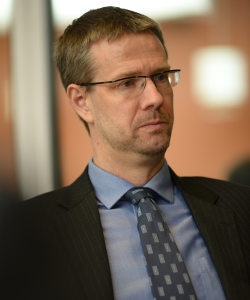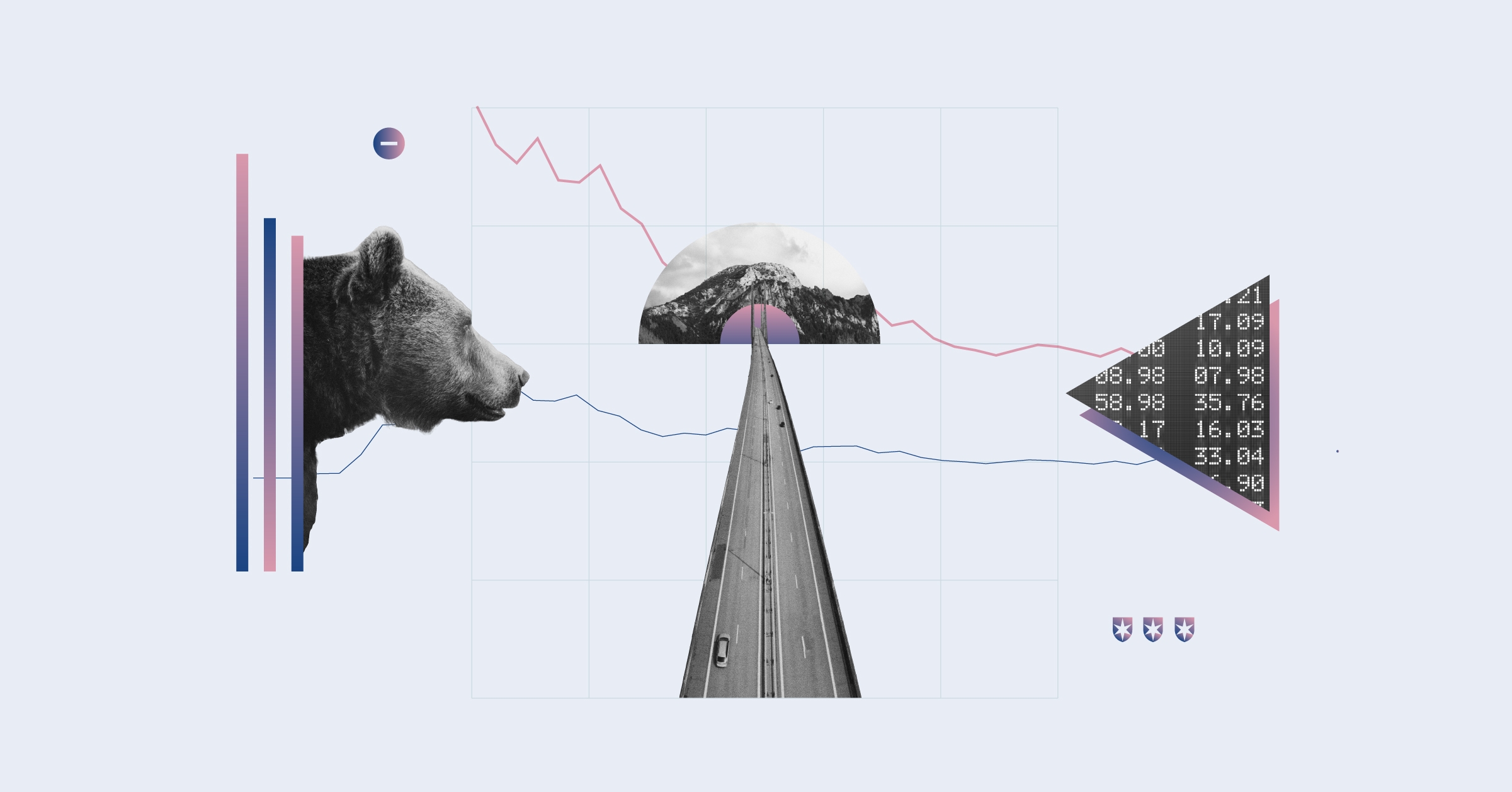Michael Hatcher, head of global equities and director of research at Trimark Investments, says the favourable economic backdrop for stocks in both developed and developing markets is being fully reflected in equity valuations. "It is therefore prudent for investors to be careful about what stocks they currently own and be highly selective in adding new names to their portfolios."
Global economies and corporate earnings continue to improve and interest rates remain at low levels -- all positive for stocks, says Hatcher. Furthermore, he says, this solid global economic backdrop is "overshadowing the political concerns that followed Britain's Brexit vote last June and the vote in the United States that put Donald Trump in the White House last November." More recently, France's choice in May of centrist and pro-European Union candidate Emmanuel Macron to lead the country "was a boost to investor sentiment."
The global equity market has been putting on a strong showing, Hatcher notes. The MSCI ACWI Investable Market Index, an all-country world index, registered a total return (in U.S.-dollar terms) for the first four months of 2017 of almost 9%, equalling its performance for the whole of 2016.
For the 12 months to the end of April, this all-country index's total return was 16%, which is substantially above its three-year average annual return of 6% to the end of April 2017. This key benchmark tracks stocks in 23 developed markets and 23 emerging markets.
Emerging-market stocks did even better than the all-country index over the 12 months to the end of April, says Hatcher. The MSCI Emerging Markets Investable Market Index had a total return of 19% over that period, a marked increase from its average annual return over three years to the end of April of 2%.
Hatcher cautions that valuations of stocks in the global universe are not cheap. The all-country index trades around 16 times forward earnings estimates and the emerging-markets index around 12 times. "You would expect emerging-market stocks to trade at a lower valuation than their developed-market counterparts," he says. "There is more uncertainty surrounding emerging markets at the country level and there are governance issues at the corporate level."
 |
|
 |
|
| Michael Hatcher | |
 |
|
 |
|
 |
At Trimark Investments, a division of Toronto-based Invesco Canada Ltd., Hatcher's wide-ranging responsibilities include that of lead manager of the flagship Trimark Fund and other mandates such as Trimark Global Fundamental Equity and Trimark Global Dividend Class.
Essentially a bottom-up stock picker, Hatcher has a longer-term investment horizon. He targets companies that are leaders in their field, have high barriers to entry, are strong generators of free cash flow, and produce high returns on invested capital. Furthermore, the stocks of these targets must trade at a discount to Hatcher's estimated intrinsic value.
U.S.-based companies account for roughly half of the assets of Trimark Fund, which holds 34 names. The fund has a 14% weighting in emerging markets, focused on "a few names." Among the bigger sector weights are information technology and consumer staples.
The portfolio has only a modest weighting in the financial-services sector, Hatcher says. "We prefer to own the picks and shovels of the financial industry such as credit-card services providers, which are classified as technology companies, rather than the financial institutions themselves."
Given the challenge of finding opportunities that meet his criteria, Hatcher says that he has added only one new name to the portfolio recently. The newcomer is ![]() SAP SE (SAP), a global software producer based in Germany. The company, says Hatcher, specializes in enterprise resource planning, used widely by the manufacturing sector. "It is mission-critical software and SAP is a dominant player in this area."
SAP SE (SAP), a global software producer based in Germany. The company, says Hatcher, specializes in enterprise resource planning, used widely by the manufacturing sector. "It is mission-critical software and SAP is a dominant player in this area."
SAP offers ongoing support to its customers and charges them an annual maintenance fee. "This ensures that it has recurring revenue," says Hatcher. "Companies with significant recurring revenue and long-term cash-flow visibility are the focus of our tech investments, rather than those companies that rely on fast product-upgrade cycles."
Hatcher reports that while adding SAP to the portfolio, he sold a long-standing holding in ![]() Oracle Corp. (ORCL). "I am concerned about the company's ability to successfully transition its business to Cloud services, which is a crowded field, and competition is stiff." By contrast, he says, SAP has greater visibility when it comes to revenue and cash-flow growth.
Oracle Corp. (ORCL). "I am concerned about the company's ability to successfully transition its business to Cloud services, which is a crowded field, and competition is stiff." By contrast, he says, SAP has greater visibility when it comes to revenue and cash-flow growth.
![]() Microsoft Corp. (MSFT) remains a core holding in Trimark Fund, says Hatcher. Its dominant product continues to be Microsoft Office. But the company is branching out in the field of people-based information and communication, he says. "Witness its purchase of professional networking site LinkedIn and of communications-platform Skype."
Microsoft Corp. (MSFT) remains a core holding in Trimark Fund, says Hatcher. Its dominant product continues to be Microsoft Office. But the company is branching out in the field of people-based information and communication, he says. "Witness its purchase of professional networking site LinkedIn and of communications-platform Skype."
A Brazilian company geared to the payments system in which Hatcher increased the fund's weighting is Cielo SA, which is classified as a technology company. Cielo provides merchant, payment processing and credit- and debit-card services. "Cielo's customers are local merchants, he notes. "Its products and services allow them to accept Visa and Mastercard among other cards."
![]() Visa Inc. (V), also classified as a technology company, is the largest holding in Trimark Fund. The company has a dominant brand and considerable scope to expand, Hatcher says, "even in the developed markets." Consumers around the world, he says, are increasingly using card payments instead of cash and cheques. "This augurs well for secular growth in the credit-card business." Also, he notes that Visa is integrating its technology into next-generation digital-payment products.
Visa Inc. (V), also classified as a technology company, is the largest holding in Trimark Fund. The company has a dominant brand and considerable scope to expand, Hatcher says, "even in the developed markets." Consumers around the world, he says, are increasingly using card payments instead of cash and cheques. "This augurs well for secular growth in the credit-card business." Also, he notes that Visa is integrating its technology into next-generation digital-payment products.
| Microsoft Corp. | SAP SE | Visa Inc. | |
 |
|||
| June 5 close | $72.28 | $108.24 | $96.55 |
 |
|||
| 52-week high/low | $72.89-$48.04 | $108.72-$71.39 | $96.59-$73.25 |
 |
|||
| Market cap | $558.0 billion | $129.1 billion | $222.6 billion |
 |
|||
| Total % return 1Y* | 42.5 | 35.0 | 21.6 |
 |
|||
| Total % return 3Y* | 22.9 | 14.0 | 22.8 |
 |
|||
| Total % return 5Y* | 22.4 | 15.5 | 28.3 |
 |
|||
 |
|||
| *As of June 5, 2017. All figures in U.S. dollars Source: Morningstar |
|||
Hatcher points out that Visa and ![]() Mastercard Inc. (MA) form a strong duopoly globally in an industry where there are high barriers to entry. About a year ago, Visa increased its geographic reach by acquiring Visa Europe, which was previously owned by member banks in the region. "This acquisition is producing greater economies of scale for the combined company and providing improved technology and better pricing power for Visa in Europe." Visa, he says, has stated that it is on track with the integration of Visa Europe. Visa's stock, he says, is not cheap, "but the strong visibility of revenue growth over the next decade validates the valuation."
Mastercard Inc. (MA) form a strong duopoly globally in an industry where there are high barriers to entry. About a year ago, Visa increased its geographic reach by acquiring Visa Europe, which was previously owned by member banks in the region. "This acquisition is producing greater economies of scale for the combined company and providing improved technology and better pricing power for Visa in Europe." Visa, he says, has stated that it is on track with the integration of Visa Europe. Visa's stock, he says, is not cheap, "but the strong visibility of revenue growth over the next decade validates the valuation."
Consumer-staples stocks around the globe have done well and valuations are "healthy," says Hatcher. Trimark Fund's biggest holding in this sector is the brewing giant ![]() Anheuser-Busch InBev SA/NV (BUD). Last fall, Anheuser-Busch completed the acquisition of another global brewer, SABMiller PLC, which had its origins in South Africa more than a century ago. "The combined company will reap economies of scale and have a significant share of the beer market in both the developed and the developing world," says Hatcher.
Anheuser-Busch InBev SA/NV (BUD). Last fall, Anheuser-Busch completed the acquisition of another global brewer, SABMiller PLC, which had its origins in South Africa more than a century ago. "The combined company will reap economies of scale and have a significant share of the beer market in both the developed and the developing world," says Hatcher.
Another top-10 holding in Trimark Fund in the drinks business is China's Kweichow Moutai Co. Ltd., which makes the Moutai liquor series, a popular drink domestically. "In 2012, the company suffered from China's introduction of its anti-corruption laws, as Kweichow Moutai's products had been served widely at state functions and these new laws limited this business," says Hatcher. "In 2016, we initiated a position in the stock, which was then out of favour."



















